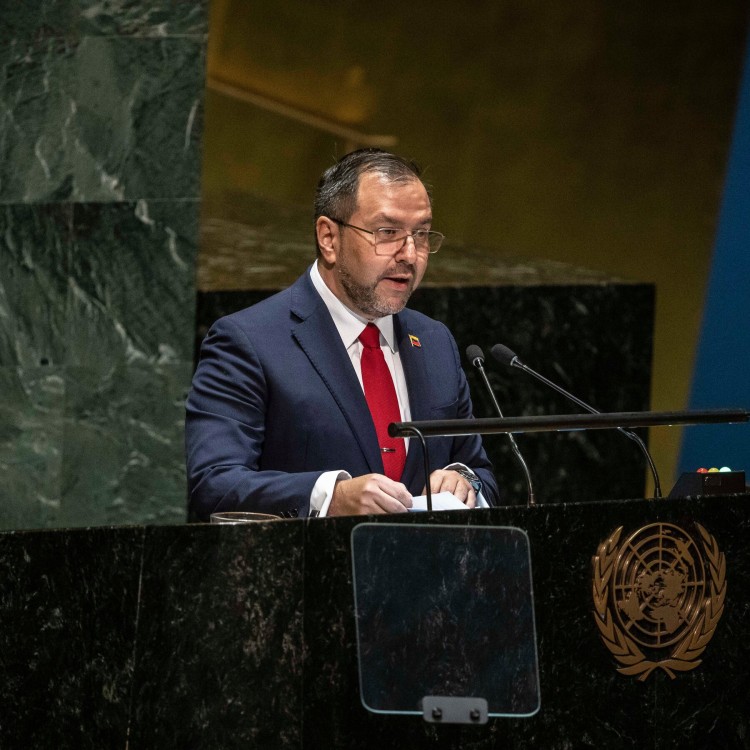Venezuela has issued an order for the local office of the United Nations human rights body to halt its operations, demanding that its staff vacate the country within 72 hours. This bold move was announced by Foreign Affairs Minister Yvan Gil during a press conference in Caracas, where he accused the UN High Commissioner for Human Rights of actively promoting an international narrative against Venezuela.
The decision to shut down the UN’s local technical advisory office was prompted by the agency expressing “deep concern” just two days earlier over the detention of prominent rights activist Rocio San Miguel. The UN had called for her “immediate release,” sparking tensions between the Venezuelan government and the international body.
Minister Gil argued that the UN rights office had taken on an “inappropriate role,” functioning as “the private law firm of the coup plotters and terrorists who permanently conspire against the country.” He emphasized that this decision would persist until the UN agency publicly rectifies its perceived violations of the United Nations Charter.
The Venezuelan government, in a formal statement, declared its intention to suspend the activities of the UN rights office temporarily. It also announced a comprehensive review of the technical cooperation terms, a process expected to unfold over the next 30 days. The details of this review remain to be clarified, and it is unclear whether the Venezuelan government directly notified the UN of its decision.
The UN human rights office has been operational in Venezuela since 2019, engaging in monitoring and advising on human rights issues within the country. The abrupt decision to close this office raises concerns about the state of human rights and freedom of expression in Venezuela.
The detention of Rocio San Miguel, a prominent 57-year-old rights activist, last Friday further intensified international scrutiny. Venezuelan authorities accused her of involvement in an alleged plot to assassinate President Nicolas Maduro, an assertion the United States is said to have supported. San Miguel’s arrest triggered widespread international outcry, with the UN High Commissioner for Human Rights expressing concern over her detention and emphasizing the need for her immediate release.
This move to suspend the UN’s human rights activities adds a layer of complexity to Venezuela’s already contentious relationship with the international community. Critics see it as part of a broader pattern aimed at stifling dissent and opposition voices within the country, potentially further isolating Venezuela on the global stage. The situation remains fluid, with ongoing developments expected to shape the narrative surrounding human rights and international relations in Venezuela.



